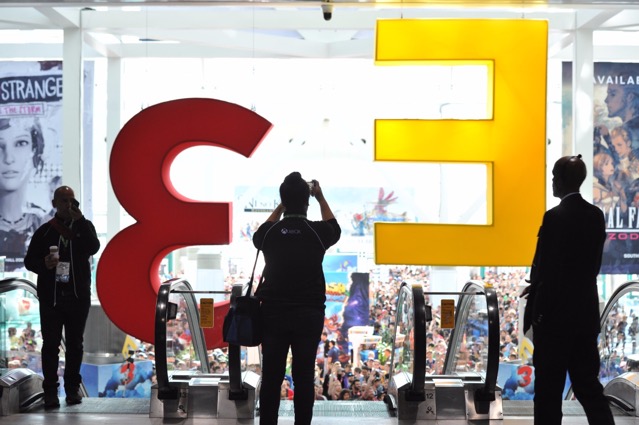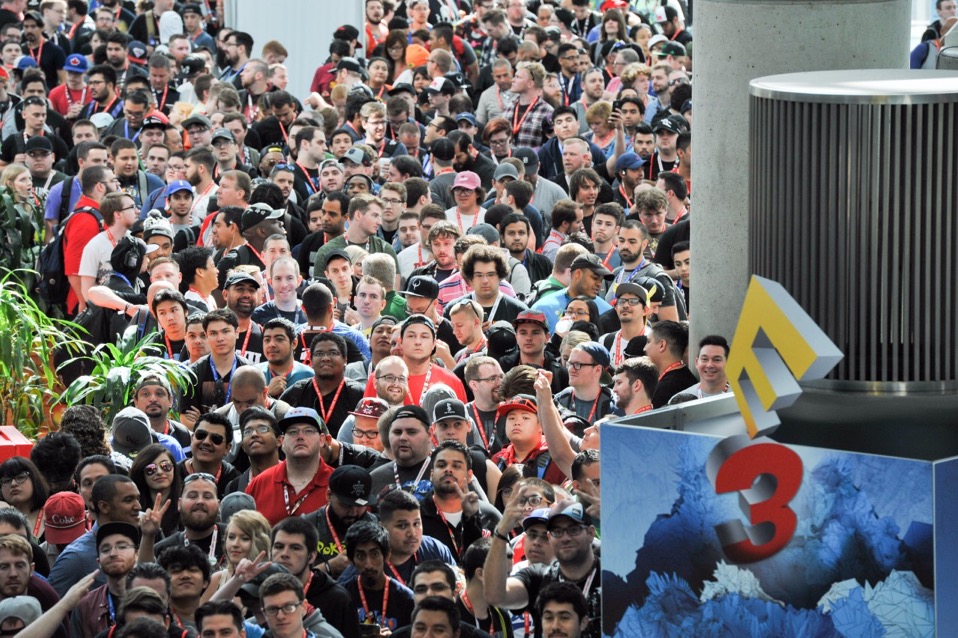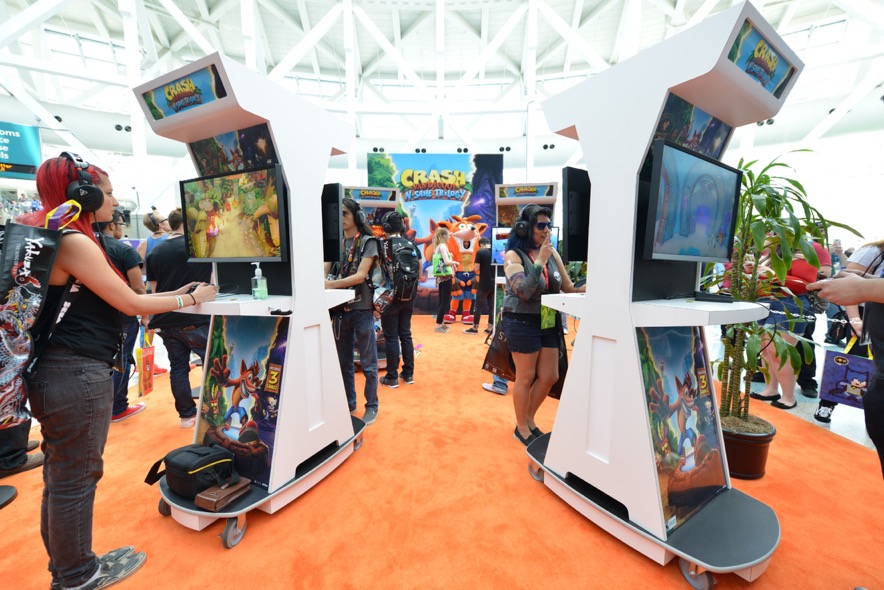E3: Where Do Games Go From Here

There is a certain attitude within the broader game community where we see ourselves as the scrappy underdog, an industry supported by impassioned and oft-misunderstood fans that is constantly maligned by the mainstream media in favor of more traditional entertainment industries. Where the only thing that keeps game companies afloat is die hard fans, and the worth of a game is measured by the community engagement online.
We’ve had this attitude for years, because for a long time, it was kind of deserved. Games were a hobby for silly kids and “nerds” socially undesirable and turning towards a digital medium for comfort.
But we’ve left that attitude behind a long time ago. Video games are about as mainstream as it can get, and playing games is no stranger of a hobby than watching sitcoms, cooking, or hiking.
This week is the annual Electronic Entertainment Expo, a business convention for video game companies to sell games to retailers and distributors who simultaneously cluing in fans on new and upcoming projects. It’s a trade show that fans have begun to co-opt into their own space, but this raises an interesting question?
Where do we go from here?

Just shy of 70,000 people attended this year’s convention, including 15,000 members of the general public (fans that weren’t there for business reasons). This was the first year that the show floor has been officially opened up, and with it, a slow shift can be seen. E3 was not hard to get into before, but it used its closed off show floor as a way to be, at least, ostensibly, business focused.
But that didn’t stop tens of thousands of people from queuing up for demos, taking free swag, and posing for pictures with scantily clad models. To an outside viewer, it’s looked like a fan convention all along, but that wasn’t the purpose. The show was there to give investors an idea of what was coming out, and whether or not they should be happy.
For those of you unfamiliar with this practice, what would happen is that a publisher or studio would take this opportunity to show their game to representatives for all of the major retailers. Before Was-Mart agrees to carry a copy of a game, they need to know if it will sell, and if so, what is an appropriate number of copies to order from the publisher for sale.

It’s why you can walk into a GameStop and find 400 copies of Call of Duty or Battlefield on release day, but only 3 of Hyperdimension Neptunia. It is because that is how much they think they will realistically be able to sell. Retailers have to put in their order for games months ahead of release, which means that they have to be able to judge the performance of a title long before launch day.
If you’ve ever worked retail, it’s no strange sight to see a box full of games sitting in the back of a store a month ahead of launch night. As soon as a game is finished, it will be sent for certification, then pressed to disc, and then it will be shipped out to retailers, which can take some time. Upwards of a month in some cases.
But over the last few years we’ve seen a shift away from this focus. Gone are the graphs and sales numbers from the big press conferences, long complained about by fans for being “boring”, instead replaced by livestreams and e-sports demonstrations, with crowds full of paid fans placed to build maximum amounts of hype and cheers. Nintendo even stopped holding their formal press conference in favor of another instance of their smaller “Direct” series, where they stream directly to fans, and after seeing its success, other companies are slowly following in their footsteps.
Once business oriented presentations have slowly been shifted towards being almost purely for fans and the games press (like us).
Which is a really great thing for fans. We’ve seen a direct and tangible effect of fan engagement on the business direction of these companies, most notably with the “always online” Xbox One debacle that Microsoft is still trying to recover from.

But this shift leaves both E3 and the gaming industry at large in an interesting position. E3 is being aimed at audiences, but the format for it is still largely unable to accomplish this goal, and as it moves towards this end, there is an opportunity for something to rise up to take its place in the business space.
Compare E3 to the Penny Arcade Expo (PAX), a series of fan expos that now range all around the world. As they were designed from the ground up to be aimed at fans, they are both better equipped to handle the tens of thousands of people who would like to attend, and ultimately more enjoyable for the people that do. The LA Convention center is a good venue, but is being underutilized to support the massive amounts of fans that attend. Four plus hour long lines are the norm for popular titles at E3 and a massive amount of space is being wasted.
Writers have to navigate through all of this while the stars of the industry (from game makers to game writers) have to contend with thousands of people that want to stop them and talk. It leads to an environment where really no one is happy. Fans don’t get to see the games or the people that they are there for, and the people that are there for business can’t effectively do their jobs.
Some of these problems will undoubtedly be solved over the next few years, as E3 completes its shift into a consumer oriented show. The question is that as it does, should we expand to see another business expo rise to take its place. We already have both DICE (Design, Innovate, Communicate, Entertain) and GDC (Game Developers Conference) that cater to industry specific conversations, but in terms of a purely business trade show, E3 is kind of all we have left.
The games industry is rather unique in how it treats these conferences, as there really isn’t any public facing equivalent for many other entertainment industries. We don’t have an E3 for film, and Comic Con has no pretense of being anywhere near business focused.
Do we even need an E3 anymore in this new, beta/early access driven industry?
I’m of the opinion that we should have something like this to at the very least keep companies accountable to shareholders and retailers, but it’ll probably fade away slowly with the increased communication between devs/publishers and the public. It’ll be a little weird watching E3 move away, but it’s only natural. Companies know that Call of Duty is going to sell. They know that Assassin’s Creed will be popular. And they know that niche Japanese role playing games probably won’t drive hundreds of thousands of people to the store on day one. We probably don’t need E3 anymore, we just haven’t come to accept it yet.
_____________________________________________

Tom has been writing about media since he was a senior in high school. He likes long walks on the beach, dark liquor, and when characters reload guns in action movies.
You Might Also Like:
Why Did I Watch That? - Hitman (2007)Ludonarrative Dissonance
Situation Invincibility and How it is Ruining Action Movies
_____________________________________________
Images courtesy of the Electronic Entertainment Expo